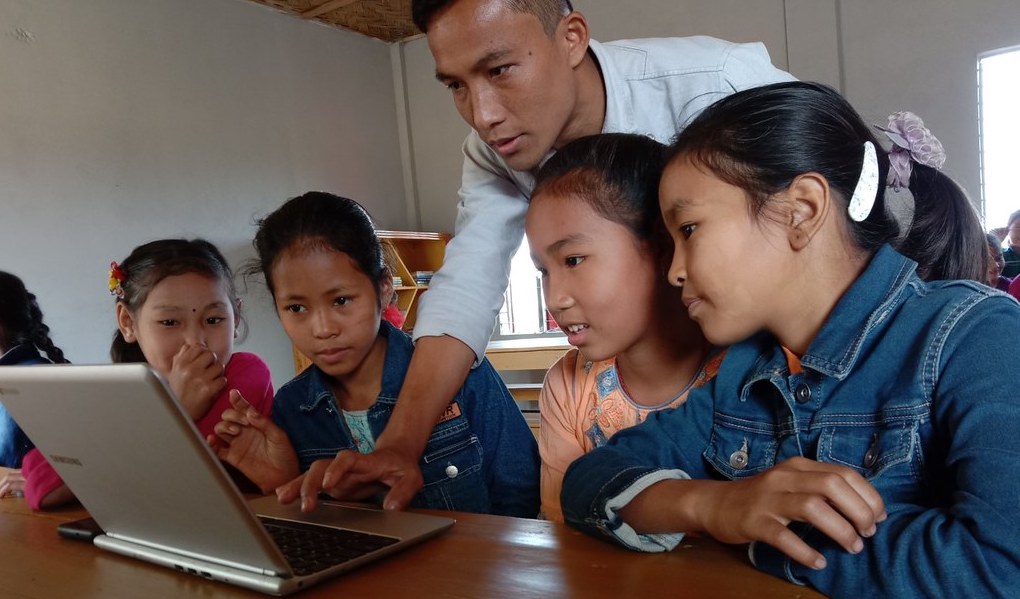The Visakha Girls’ School provides a free education for girls from impoverished families in the Chittagong Hill Tracts of Bangladesh.
By BGR Staff
The Jamyang Foundation, founded in 1988, supports innovative education projects for Indigenous girls and women in two of the neediest and most remote parts of the world: the Indian Himalayas and the Chittagong Hill Tracts of Bangladesh. For several years, BGR has sponsored Jamyang’s School Lunches for Marma Girls project in Bangladesh, feeding students at Visakha Girls’ School, which serves disadvantaged girls from the remote village of Dhosri and surrounding villages.
The Marma people are one of four Indigenous Buddhist groups living in hilly terrain along the Bangladesh/Myanmar border. As members of an ethnic and religious minority, they live in precarious conditions of economic impoverishment and political uncertainty. The girls who study at the Visakha Girls’ School come from extremely poor families and live in very remote villages where girls have few, if any, educational opportunities. Their families generally eke out a meager living through farming small plots of land, working as day laborers, or petty trading. In the past few years, many families have faced additional financial burdens and food insecurity caused by the ongoing pandemic, abnormal weather events, and widespread unemployment.
Due to a scarcity of schools in the area and a lack of paved roads, few children in the local community have had access even to primary education, and the obstacles for girls were particularly high. Boys have the advantage of being able to attend temple schools in their villages, but girls do not have this option. Likewise, boys may attend government schools in neighboring villages or towns, but walking to school poses serious security concerns for girls, who are vulnerable to harassment or assault.
Before the founding of Visakha Girls’ School, virtually all the women in the area were unschooled and illiterate. As a result of their educational disadvantage, few people in remote areas like these are able to avail themselves of government funding for rural development, because they are unable to write letters or fill out the applications.
The schools founded by the Jamyang Foundation have been instrumental in changing attitudes toward education for girls and have helped uplift the status of women in general in the Chittagong Hill Tracts. Since 2006, when the Visakha Girls’ School opened its doors to 38 students in two classes, the school has gradually expanded its programming until, in 2020, it was serving 130 students in classes from preschool to fifth grade.
Each year, about fifteen students completed the fifth grade, and some were able to continue their studies at a junior high school located about five miles away. However, many of the girls had to end their education after finishing fifth grade, due to poverty and the long commute; the distance is simply too far for sixth-grade girls to walk each day.
This year, BGR is supporting the Expanding Education for Marma Girls project, funding the construction of a new school building to enable the Visakha Girls’ School to provide education for girls up to eighth grade—potentially, an additional 75 to 100 students.
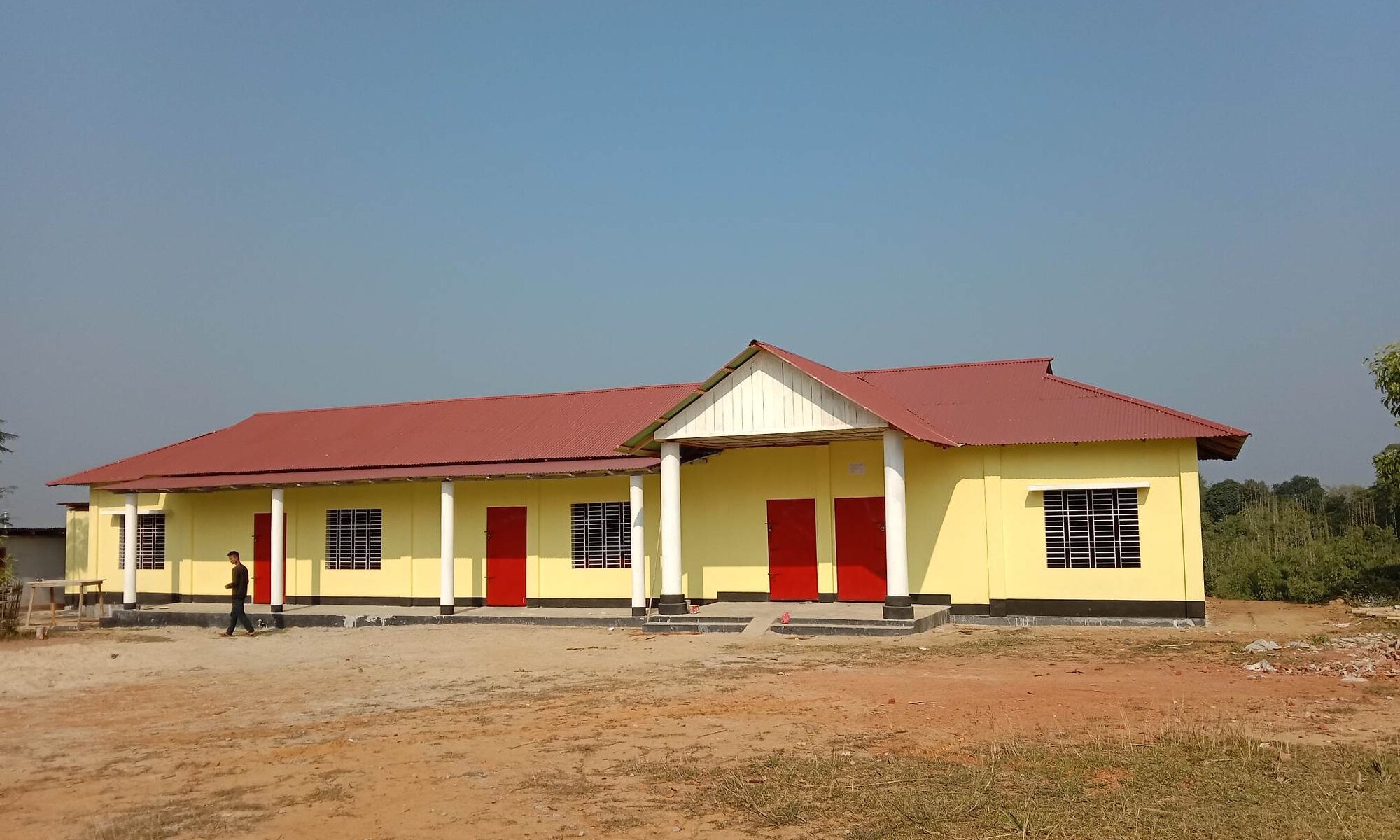
The new classroom building will allow the school to educate girls through their eighth-grade year.
Since the completion of construction in January 2022, the school grounds are now home to a beautiful new building with three classrooms, an office, and toilets. In this first year, the Visakha Girls’ School has accepted seventeen students for the new sixth grade and hired a new teacher.
Three members of this inaugural class of sixth-graders spoke with the Jamyang Foundation about their experiences:
Masaching Marma is the top student in her class. Her father is a farmer and part-time member of the village police force. Before the new building was constructed, her only option to continue her education would have been to move to the town of Manikchari, even though to do so would be a financial hardship for her parents. “They made up their mind earlier on to do whatever it takes to send me to junior high school, even in that far place,” she said of her parents’ support for her education. “But the new school, Visakha Junior High School, has given me a great new chance.” She added, “Here teachers are also very nice, kind, and pay attention to each student, as class size is small. The excellent part is this school is offering a computer technology class, which is unimaginable in other schools. We also have a nice library.”
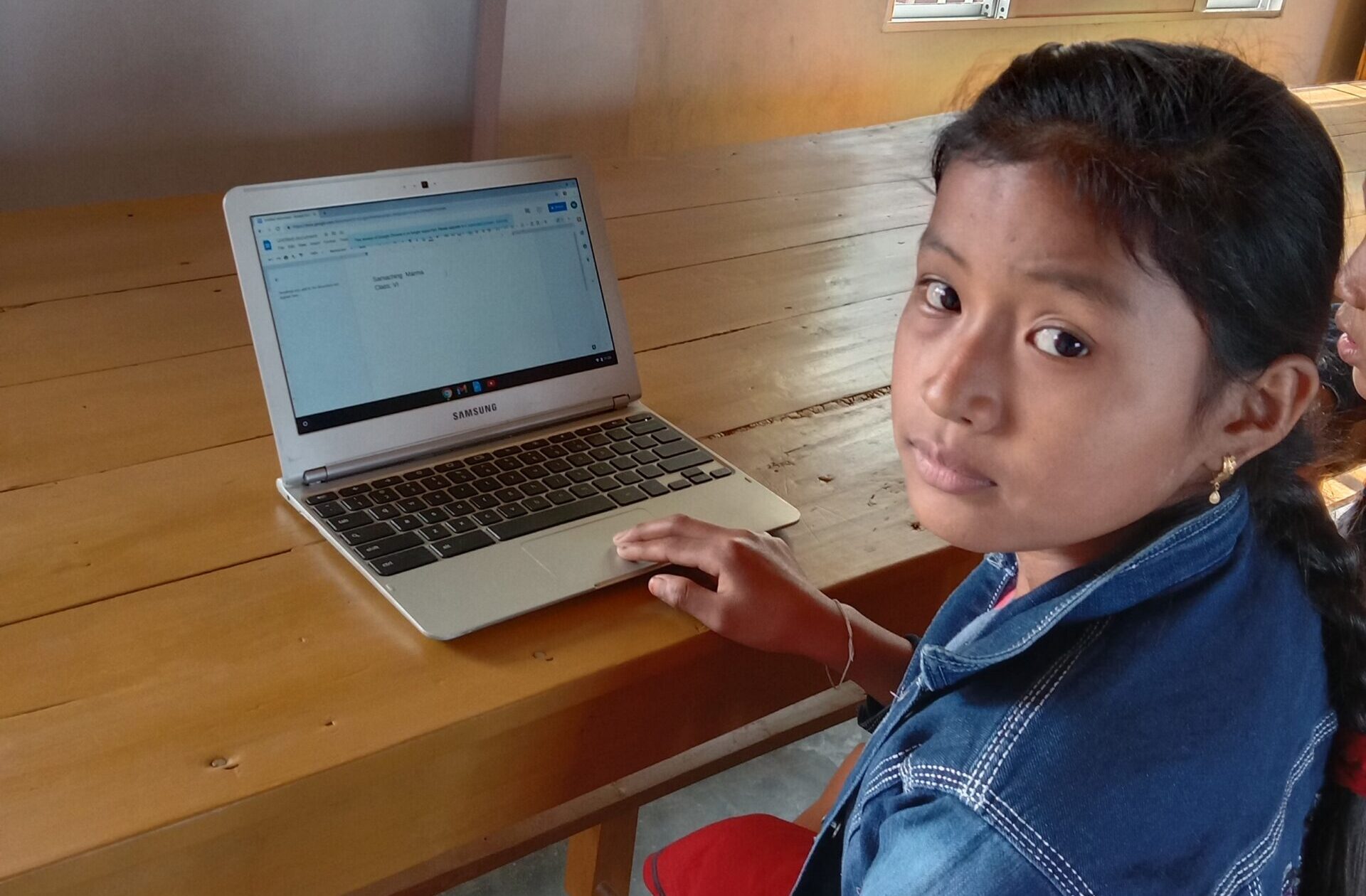
Masaching Marma works on a Chromebook in the new junior high school building.
Usainda Marma graduated from the Visakha Girls’ School a year ago. The daughter of a poor farmer and day laborer, she enrolled in junior high in Manikchari. Because her family could not afford to pay for her room and board, Usainda walked the two hours each way to and from school. When Covid closed the school for long periods last year, Usainda feared that her education was about to end. “I am very fortunate that my old school, Visakha Girls’ School, has started accepting sixth-grade students this year. This has given me a new life,” she said. “Although I will be repeating my sixth grade, I believe it is better for me. I am very happy that I can now attend school from home.”
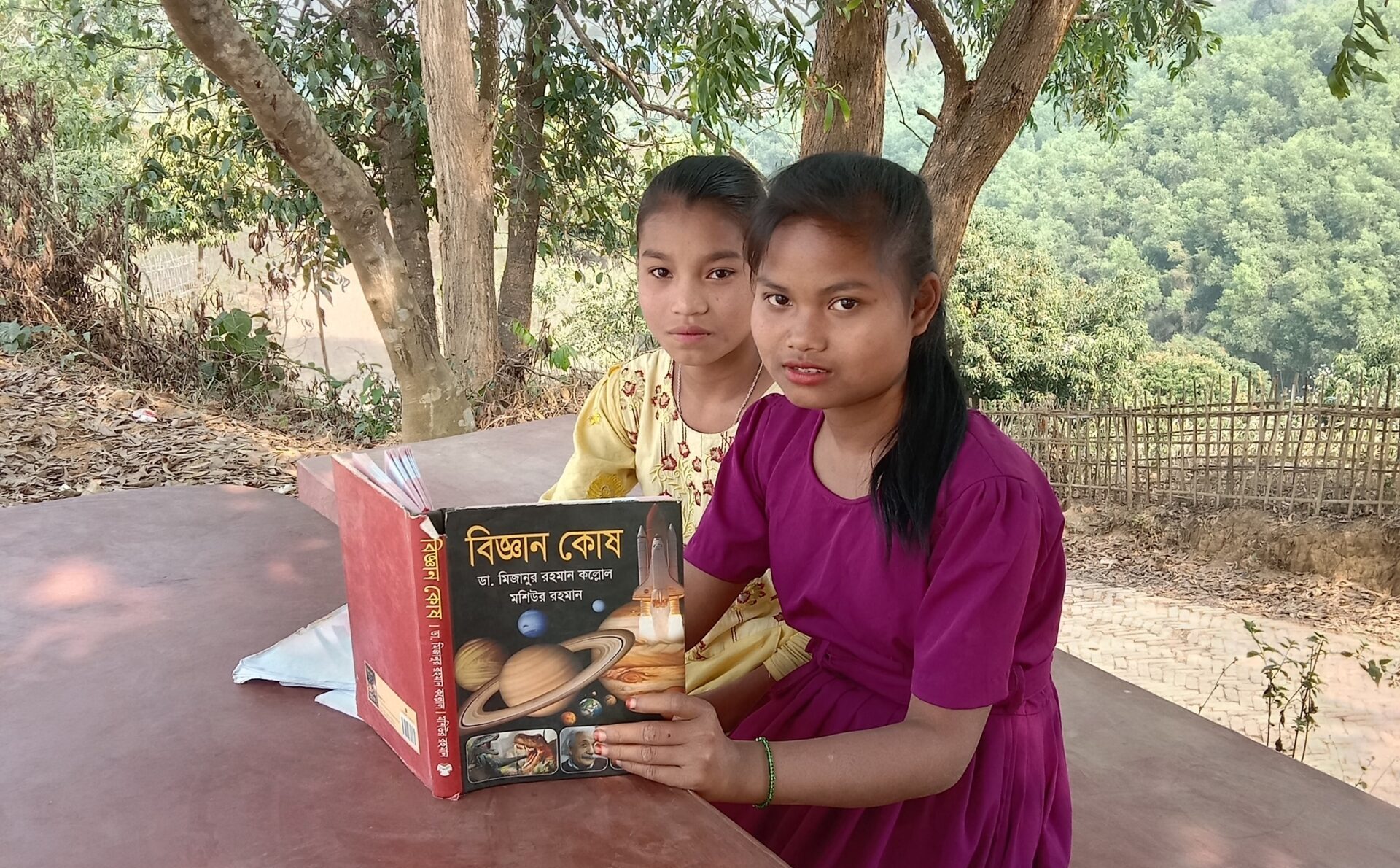
Usainda Marma sits at a table on the school grounds, part of the new construction funded by BGR.
Paisanu Marma is the eldest of six children whose parents work as farmers and in day labor. “As an elder child,” she said, “I had to take care of my siblings and help my parents with various chores. Luckily, my teachers at the Visakha School work closely with parents and explain to them the importance of education. There was no chance that I could have continued my schooling without Visakha Junior High School, and without support from the teachers.” She continued: “Here everything is free. We not only get free education, the school also gives us pens, pencils, notebooks, and books for free. I have enrolled in the sixth grade, and I am very confident that I will be able to finish at least eighth grade in the same school.”
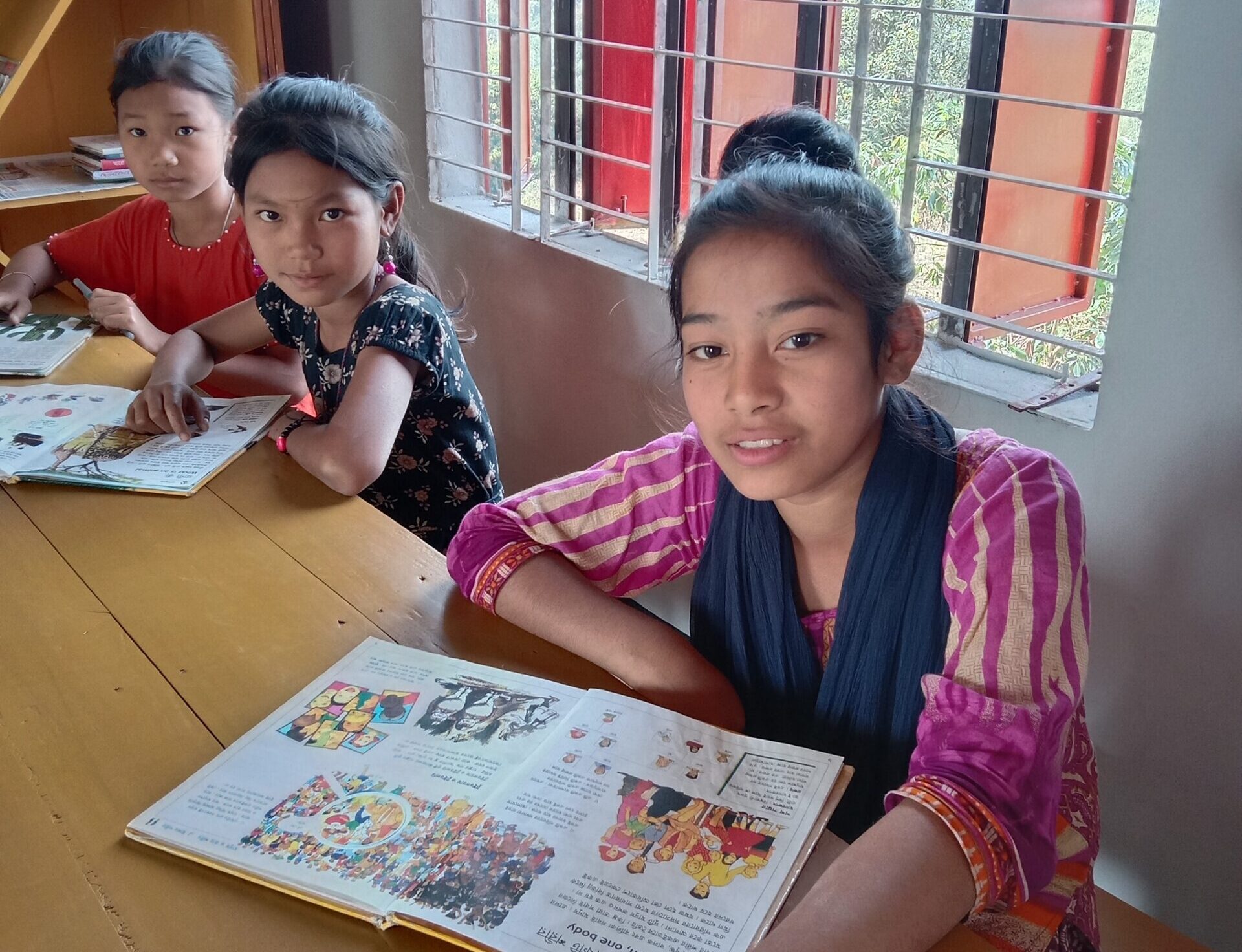
Paisanu Marma in her newly built school classroom.
The Jamyang Foundation’s aspiration is eventually to expand the programming at Visakha Girls’ School further, to enable its students to stay in school through high school.
This article is based on reports from the Jamyang Foundation.

